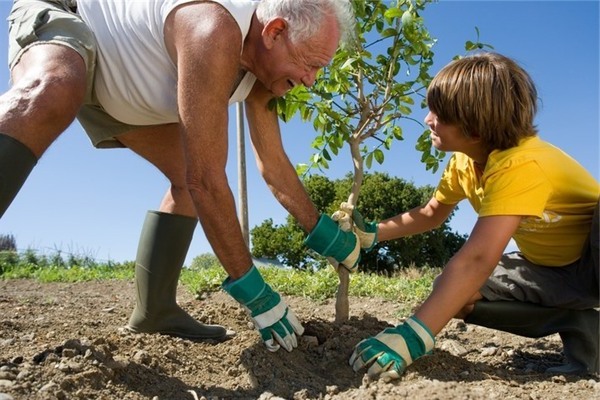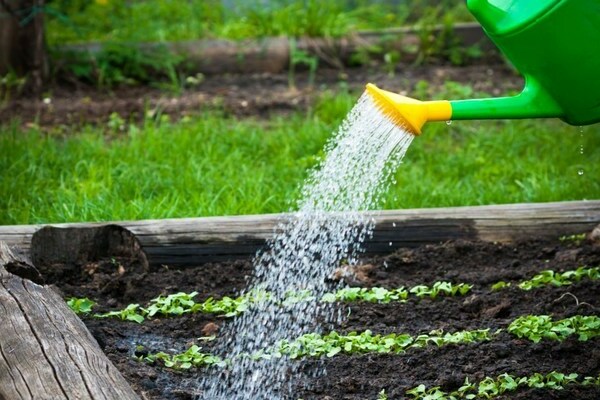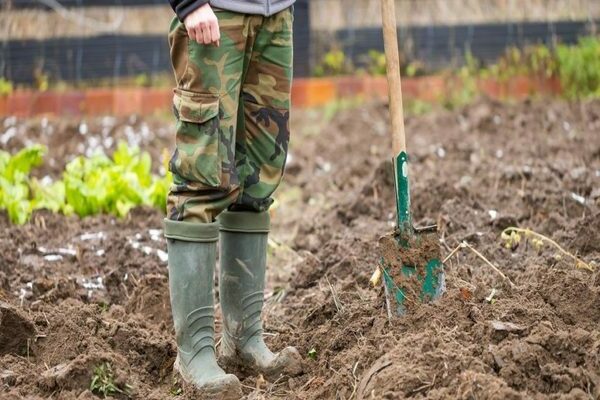Gardeners' mistakes. 15 serious mistakes that should not be made in the garden in the fall
Content:
Many novice gardeners selflessly work on their plots, tirelessly, all season. Everything is as it should be: from early spring to harvest. But about preparing a garden and a vegetable garden for the winter, sometimes they completely forget. It’s in vain! Consider the main gross mistakes of gardeners associated with autumn work.

Gardening errors associated with nitrogen fertilization
It is clear that every plant needs the necessary amount of useful and nutritious substances. But everything has its time. So, for example, starting in early spring and in the summer, we, as a rule, feed our plants with fertilizers with a complex chemical composition. As for the autumn time (even starting from August), here you should be careful with nitrogen. The fact is that this substance stimulates development in plants in terms of growth. At the end of the growing season, this is not necessary, since nitrogen interferes with the normal formation of bark in shrubs and trees. This can interfere with normal "wintering".
Also a common mistake is that the more fertilizer, the better the plant. Overfeeding is also not good. You don't have to feed your garden every season. There are even plants that only need your help with additional nutrition every few years.
Forgotten harvest at the site
Often, ending the summer cottage season, gardeners or gardeners either do not have time to clean up the site, or are simply lazy. We are talking about the remnants of your seasonal harvest: garden greens, unharvested fruits, etc. All this is a great place for the spread of all kinds of pathogenic bacteria that calmly overwinter in the left fruits. In this regard, when sending your garden for a dormant period, carefully examine each plant: are there any fruits left to hang? There should be nothing superfluous on the ground, as well as on your beds.
Compost to the mercy of fate
Most likely, it's not a secret for anyone that rotted compost is a great help in plant feeding. But the compost heap also needs some maintenance. Don't leave everything in the compost. Will not benefit, for example, meat leftovers, as well as those containing fat. Do not throw weed roots, seeds, or any synthetics into the compost. So that the rotting of your compost does not stop in winter, you need to lay a solid layer of fallen leaves, sawdust on top, or simply fill it up.
Leaf litter on the site
Many summer residents believe that fallen leaves are an excellent tool for mulching near-stem circles, and the leaves are also good as a natural fertilizer for many plants. This is, of course, true. However, all these statements are relevant in the case of an absolutely healthy garden, free from contaminated or diseased plants. Otherwise, foliage is a great place for "wintering" various fungal diseases and pests.If you are not completely sure that your garden is completely healthy, it is better to burn the harvested foliage, or process it and only then send it to the compost.
Gardener mistakes: little attention to siderates
Often, gardeners, already thinking about the end of the summer cottage season, are in too much of a hurry to harvest plants from the beds. You can often see a picture that at the end of summer the garden bed is already bare earth, in some places overgrown with weeds. Siderates are absolutely undeservedly bypassed, and it is definitely not too late to sow them.
Plants with "green manure" properties can be of great help to your land! They are able to "raise" higher important essential substances, to increase the air flow in the soil.
Do not plant anything "before winter"
Often, summer residents neglect planting "before winter", greatly tired of the seasonal garden bustle. However, if you still make the "last spurt" and still occupy your beds with winter plantings, then, firstly, it will be good to make your life easier for the next season, and secondly, to get the first harvest earlier than if you planted everything in the spring. In addition, there is every chance to have time to carry out sowing for the second time.
We plant crops at the wrong time
On the Internet, you can often find materials about when and how to plant certain crops correctly. And most often it is said about the dates in the middle of September. But not all authors of articles specify for which region this information is relevant. The fact is that in the southern regions the landing time comes later - in October. And September is the time of planting in the middle lane and for more northern regions. It is also worth noting that for the south it is much better to plant crops in autumn, since it is "elongated" in time, and winters are not so cold. During this time, a young tree or shrub will have time to take root well by the onset of spring. But as for spring, here the picture is less predictable, and too rapid onset of hot weather may not have a very good effect on the health of young seedlings.
Neglecting autumn pruning
Pruning in the fall is very important and should not be overlooked. Firstly, no one canceled the obligatory so-called "sanitary" measures, all broken, dry branches are in plain sight. It is easy to tell from memory which bushes do not give good results. But it also happens that some representatives of your garden do not want to leave for "wintering", and continue to grow rapidly. Everything would be fine, but only this circumstance strongly interferes with the formation of a normal, strong bark of plants. Therefore, in these conditions, the best solution would be to cut ten to fifteen centimeters off the shoots.
In addition, do not forget about formative pruning for some crops (grapes, currants, gooseberries), and also carefully examine the bark of trees for decay and possible pests.
To whiten or not to whiten? That is the question
On this issue, many spears have been broken among gardeners and truck farmers. Someone argues that this procedure is not worth such attention, others say that without this a good healthy garden cannot exist. So who should you believe?
Still, the arguments for an autumn whitewash outweigh. The fact is that lime is an excellent remedy for diseases and pests that can greatly harm your plant by remaining "hibernating" in the bark. Another reason why it is better not to lose sight of the autumn whitewash is the spring and winter temperature fluctuations. This factor often causes a burn condition in the trunks, the bark begins to crack. Whitewashing is a good "reflector" of excess light and heat and helps to avoid these problems. Remember that trees are too young to be whitened.
Gardening errors associated with early watering
Of course, autumn is primarily associated with heavy rains. This is often the case, of course.But still, sometimes there is a protracted warm autumn, and on your beds there are still crops that do not plan to enter a "state of rest" yet. They need more watering! In stable dry weather, a lack of moisture is provided, and this threatens with improper development of plants and subsequently a poor harvest.
There is one more point regarding watering in the fall. The fact is that your garden trees need a charge of moisture for normal wintering. This procedure is needed for several reasons: "hardening" of your plant, the possibility of normal development of roots before the onset of frost, delaying the moment of freezing of the earth.

We are in a hurry or late to reap the benefits
Harvesting is definitely a useful and enjoyable activity. However, you shouldn't relax here either. Often, in a seemingly not the most difficult case, mistakes happen. They are usually associated with the harvesting of root crops. So, for example, if the carrots are removed from the garden ahead of time (before the onset of the first frost), then there is a possibility that the size of the fruit will be almost twice as small. And if you take too long with the harvesting of beets, then there is a risk of getting fruits that have already lost their taste value. And change the time of these two procedures in places - and everything becomes good!
Or another example. Let's say you didn't have time to ripen all the tomatoes. Someone will say: "It's okay, the main thing has already been collected, but let this remain." This is not worth doing, the fruits will simply remain to rot. It is better to wait for a temperature of 8-10 degrees Celsius, collect the tomatoes and put them to ripen in a place protected from light. So, you will not leave rot in the garden and will not lose part of your harvest.
Gardeners' mistakes. Is digging always good?
The main reason for digging the ground in autumn is pest and weed control. There is one "but" here. Digging your garden bed to a fairly decent depth, you destroy the useful layer of the earth, which contains other, on the contrary, useful microorganisms. Therefore, the advice is this, if there is no special need for that - do not dig deep once again. It will be enough to superficially loosen your beds.
When digging deeply, pay attention to the fact that there is no need to grind large clods of earth. It is better to leave them, it will be better for the land in the winter.
In autumn, it is impossible to dig deeply into the zone of the near-trunk circles. The onset of low temperatures will become especially dangerous for damaged plant roots.

Covered ahead of time
In regions with harsh winters, "cover farming" thrives. Since October, all crops go under the snow and covering materials. This is where the catch lies. Since the climate is rather unpredictable these days, cold temperatures may be late. And then, the opposite problem will arise - an excessive excess of heat and the subsequent rotting of the plant.
The summer resident's tool was left in vain
Someone might think that the inventory used does not need special attention. But this is not the case. Do not forget to clean shovels, hoes, rakes from the ground, and then disinfect and oil. Do not forget to also pay due attention to your pruner, this is a very important tool in gardening. It must be periodically sharpened and disinfected. This is necessary in order to avoid the spread of diseases.
Drain water from barrels, watering cans, buckets. And from the irrigation systems you need to completely disassemble, in order to avoid rupture.
Gardeners' mistakes: forest guests are not taken into account
It is a mistake to think that protecting your garden and vegetable garden is needed only from diseases and insect pests. But it is not so. You may leave for the city, closing the summer season, but the winter time will not stop the forest visitors. It is necessary to take protective measures against mice - voles and hares.

